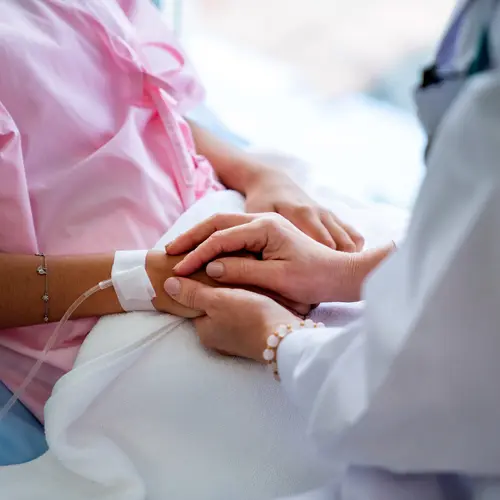A cancer diagnosis can be scary. You want to make sure you get the best treatment possible. But how do you know who to go to? No matter what type of cancer you have -- or whether you need surgery, chemotherapy, radiation, or all three - should you see a doctor who specializes in your particular type of cancer? Or will a generalist do?
Like most things medical, the answer isn’t crystal clear. And many people may not have much of a choice. Because there are more than 100 different types of cancer, finding someone who specializes in the type of cancer you have may be a challenge. So before you get too anxious about finding a specialist, ask yourself these three questions:
- What kind of cancer do I have? For most cancers, little data exists proving that going to a specialist in your cancer will lead to a better outcome. Common cancers, such as colon cancer, are going to be treated very well by most medical oncologists, says Otis W. Brawley, MD, chief medical officer for the American Cancer Society. However, if you have a more rare cancer, such as ovarian cancer, it may be beneficial to see a specialist, because a generalist may not have much experience treating your particular type of cancer.
- What’s my course of treatment? If you need chemotherapy, a general oncologist can probably do just fine. "Whether I go to the Mayo Clinic, Sloan-Kettering, MD Anderson, or my community oncologist, they’re all going to give me the same drugs in the same dosage on the same schedule, so it’s going to be the same treatment," says Michael Fisch, MD, chair of the department of general oncology at MD Anderson Cancer Center in Houston. "The question then becomes, where do I want it given?"
On the other hand, if you’re having a procedure, particularly a surgical procedure, it may be worth it to see a specialist. Although not studied in all cancers, some data have found that the more procedures a surgeon does, the better he or she will be at it. For example, women with ovarian cancer who have their debulking surgery (surgery to remove the bulk of the cancerous mass and decrease its size) by gynecological oncologists do better than those whose surgeries are performed by general surgeons. Men with urologic cancers who are operated on by doctors who do more of those operations have better outcomes.
- What are my goals? If you have an early stage, curable cancer it may be advantageous to see a specialist, says Timothy Gilligan, MD, a medical oncologist at the Cleveland Clinic. Testicular cancer, for example, is a very curable cancer that usually affects young people, and there are not that many cases of it around, says Gilligan. Hodgkin’s lymphoma is similar. Even though the treatment is relatively straightforward, mistakes in management can have huge consequences for a young person with a curable cancer, he says. If, on the other hand, you have an incurable cancer and your aim is to minimize the burden on you and your family, you might not want to travel the country searching for a specialist.
How do you find a specialist?
Ask your family doctor for a recommendation. If there’s a cancer support group for your particular type of cancer in your area, ask members there for names. If you get a chance to interview the doctor before you start treatment, ask some questions, including
- What are the alternatives (if any) to the treatment you’ve recommended and why did you recommend that treatment over the others?
- What are the side effects of the treatment or treatments you recommend?
- What is the likelihood of being cured? If incurable, how will you benefit from each treatment option discussed?
Your doctor’s responses to these questions can tell you a lot about how thoughtful this doctor will be during your course of treatment. Do you understand what he’s saying? If not, does he take the time to explain himself again? You should also ask how many patients he’s treated with your particular type of cancer and at your stage, and where and how he’s been trained in his specialty.
Look for a Doctor and Hospital That Participates in Clinical Trials
Ask if they participate in clinical trials - centers that do are more likely to be up to date on the most current treatments. And some research has found that doctors who participate in cancer clinical trials took better care of all their patients. If you’re having surgery, ask the doctor’s role in the surgery, as well as the qualifications of her team.
Certain specialists are hard to find and if traveling to one for treatment isn’t feasible, you can still take advantage of her expertise. Get a second opinion to make sure [the specialist] agrees with your treatment plan, or can help develop a treatment plan, even if the treatment is going to take place at a place closer to home, says Gilligan.

